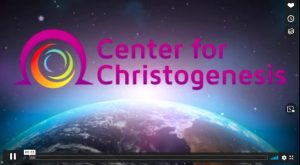Session 3: Life’s “Aliveness”
Hello again, course participants. And welcome to Week 3 of our Thurman course!
We spent most of our first week together “getting to know”– one another, the course structure and content, and, of course, Howard Thurman.
This past week we began to dig more deeply into Thurman’s concept of “community” as he began laying it out in the first two chapters of his 1973 text, The Search for Common Ground: An Inquiry Into The Basis of Man’s Experience of Community. In our recent live seminar I asked questions about the sources Thurman chose to include in these two chapters; namely, poetry, autobiographical narrative, religious “origin” stories, and some constructive thought from the American writer and folklore scholar Maria Leach (1892-1977).
In plenary and small group dialogue we discussed the benefits and challenges of reading over Howard Thurman’s shoulder as he intermingled “hard(er)” science (evolutionary theory and biology) together with “soft(er)” religious myth (Judaism’s Genesis story and the Hopi Creation narrative). Many of you admitted that both genres of truth and meaning making were important to your own contemporary spiritual, intellectual, and ethical vision and practices. Several of you also confessed that–”We need new creation stories,” citing the “out of date” defunct nature of much of the Judeo-Christian “origin” mythology you were brought up to know and “believe.”
Relative to this part of our discussion, I introduced a summary of American theological ethics scholar Theodore Walker contemporary critiques of the idealism and hyper-positivity of mainstream process theology. Walker concurs with his theological colleague Thakenda’s critique of the “pretensions” of process thought, specifically her argument that “the oppressed do not share process theology’s rationalism and idealism; it (process thought) is too essentially rationalistic, European, and radically monistic.”
As we pivot during Week 3 to focus on the “aliveness” of life itself as an important clue to Thurman’s notion of “community,” I think it is important to consider how his work, in Search for Common Ground and more broadly, can offer a corrective to some of these, in my mind very legitimate, critiques of traditional process informed projects.
Speaking of Week 3, please hear the following phrase in what you imagine is my own scariest and silliest ghoulish voice:
“It’s Alive! It’s Alive!”
When hearing this refrain, a good number of people think about Mary Shelley’s Frankenstein story. Or similar sub or trans-human “creatures” that, in exciting and frightening ways, incarnate raw, living force and energy. Such creatures are beautiful and horrifying in their “aliveness.”
This week Howard Thurman leads us deeper into our search for community. And he does so in relation to his own study of life’s own “aliveness.” Thurman, not surprisingly, takes a theological approach to interpreting life’s force, form, and function in his interpretation of life itself as “the Mind of the Creator coming to Itself in Space and Time.”
Get ready to reflect on yourself and your own experience and quality of being “alive.” And get ready to reflect on this not just in relation to yourself and to God, but also in the context of your relationship with other people, larger human cultures, and the broader natural world.
Reflection Questions
- How do you define “aliveness”? What words come to mind? What traits indicate that something or someone is indeed “alive”?
- When and where have you experienced yourself as being “most alive?” What about as being “least alive?” What circumstances–internally and externally–factored into these times and seasons in your life?
- Howard Thurman dedicated a significant portion of the third chapter of Search for Common Ground to his meditation on the human body’s–and more generally life’s–various systems that enable and regulate “aliveness.” How did you find this portion of his thought? Engaging? Challenging? Relevant? Etc.?
- Finally, what, for you, would be the opposite of “aliveness?” Thurman spent some time reflecting on the concept of a sense of “disease” and being “diseased.” Is his thinking here relevant for you? What other term, concept, or idea–in your mind–is directly counter to “life” and “aliveness?”
Scripture
“‘And I will put my Spirit within you, and you shall live, and I will place you in your own land. Then you shall know that I am the Lord; I have spoken, and I will do it,’ declares the Lord.” Ezekiel 37:14.
Readings
-
- Chapter 3: “The Search in Living Structures” from Thurman’s Search for Common Ground.
- Read “The Great Incarnate Words” by Thurman here.
- Read Thurman’s two centering pieces: “The Night View of the World,” and “Reaping and Sowing.” here.
- The slave spiritual Deep River: To read more about the history, musical interpretations, and political significance of this piece, see here. To hear Marian Anderson’s performance, click on the image below.
Watch the recording of session 3 here using the password “whole”:
 View print-friendly version
View print-friendly version
Related Posts

Mission for an Evolutionary Christianity
We are living through tumultuous times. Political polarization intensifies, violence against vulnerable populations escalates, and the foundational principles of human dignity face erosion. For many, the cognitive dissonance between professed…


